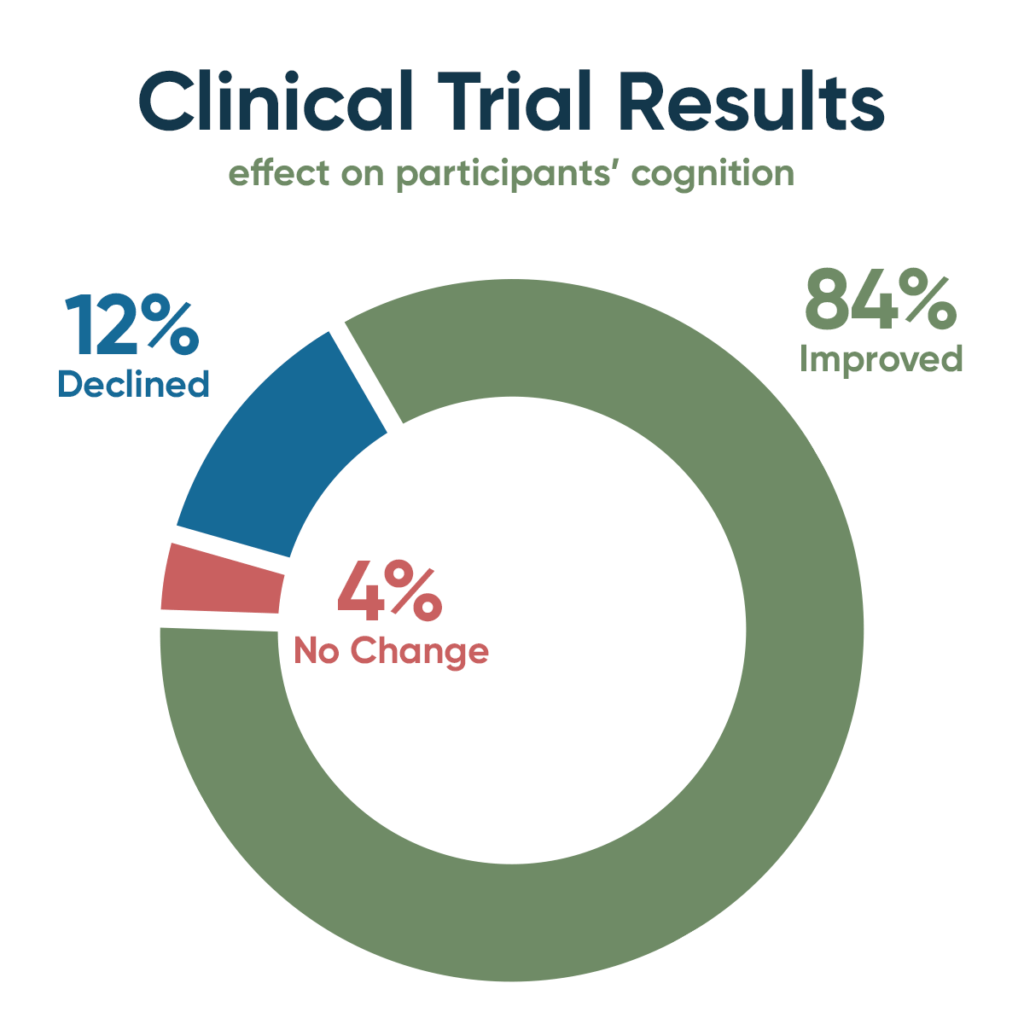June 7, 2021
Finally — Clinical Trial Demonstrates Reversal of Cognitive Decline

It has been a long time coming. After studying dying brain cells for years, fruit flies with “Alzflymer’s” and transgenic mice with “Mouzheimer’s,” then being rejected for a clinical trial in 2011 and again in 2018, publishing anecdotal success in 2014, 2016, and 2018, and finally being approved in 2019, then completing the trial in 2020, the results have finally been posted. My co-authors Dr. Kat Toups, Dr. Ann Hathaway, and Dr. Deborah Gordon, and I, along with Dr. Cyrus Raji and other colleagues, flipped the script on clinical trials: instead of pre-determining a treatment, the root cause contributors to cognitive decline were identified and targeted in each patient. And the results were unprecedented: improvements in MoCA scores, neurocognitive index, symptoms, brain training scores, and MRI gray matter volumes. 84% of the patients improved their cognition.

There is still more to be learned from this successful trial: which metabolic changes correlated best with improvement? Which areas of cognition improved the most, and which the least? Which genetics correlated with which improvements? What drivers of decline were most difficult to overcome? Data mining of the large data sets collected in the trial should help us to continue to optimize the overall protocol.
It has been a long time coming, with lots of setbacks, false leads, and competing theories, not to mention ongoing criticism, along the way. But having patients with Alzheimer’s and pre-Alzheimer’s improve has made it all worthwhile. The era of Alzheimer’s as a terminal illness is coming to a close.
Read more about the clinical trial results here.




